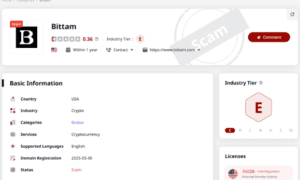Successful investors base their investments on reliable information. Gamblers ignore this at their own peril. This article will compare two of the most popular and successful market research companies with outstanding investment track records to assess which one is better for you.
The Motley Fool and Morningstar are both affordable and user-friendly investment services.
Although both companies provide information, they focus on different types of investments for varying investment goals.
Both companies offer a premium subscription model at a very similar cost.
Let’s examine each service provider, review the differences and the pros and the cons.
Click here to see our full review on Motley Fool
or
Click here to see the full review on Morningstar
Morningstar in a nutshell
Morningstar has been around since 1984. It currently has more than $220 billion in assets under management and is one of the most respected names in the investment industry.
With approximately 5000 employees, Morningstar provides a comprehensive investment research service. Here you will find a more traditional formal approach to investment strategies.
Its mutual fund rating system is well known, calculated using proprietary mathematical formulas free of human analysis. This is a data-driven approach to removing speculation, something which may or may not fit in well with your investment strategy.
The emphasis is on providing detailed information on general market trends, focusing on mutual funds and ETFs.
Morningstar services
Several excellent services are offered.
The mutual funds rating scale is a top-rated service and has been adopted by many brokerages, a testimony of itself that this service adds value.
The rating scale is now offered across stocks, credit ratings, ETFs, and other data and is a valuable tool for investors and brokers alike.
The primary offering is known as the Morningstar Premium service. This is offered on a subscription basis and provides access to many investment tools, the rating scale, and various investment reports compiled by the army of investment analysts.
The service is designed to highlight funds and companies likely to perform best over the next 5 years.
Morningstar Premium costs $199 per month and includes complete security and fund analysis access. In addition, lists are provided monthly on the top-rated stocks and bonds.
Pros and Cons of Morningstar
-
Pros
Vast amounts of information are provided to subscribers, allowing them to compare and make their own investment decisions. This is perfect for some clients who favor their involvement in stock picks and investment decisions.
The premium package gives subscribers full access to all services and benefits of Morningstar.
Users can manage their own portfolios from the Morningstar platform.
The analysis is constantly updated, allowing investors to stay current.
-
Cons
Although some information is available for free, the critical information, data and tools require upgrading to the monthly subscription model.
The emphasis is on mutual funds, focusing less on ETFs and individual stocks.
Motley Fool in a nutshell
Motley Fool has been providing stock tips since 1998 and has a good reputation for excellent market research.
The light-hearted approach belies excellence, and an enviable track record for predicting top picks outperforming traditional returns.
Respect has been earned in the marketplace, with a claimed outperformance of the S&P in returns on investment by over 600%.
Motley Fool has a broad spectrum of potential clients and is particularly well suited to newbie and intermediate investors. In addition, the system is user-friendly and non-intimidating.
More serious newsletter services are offered to heavyweight investors at a price.
Motley Fool Services
Motley Fool analysts conduct in-depth analysis on a collection of stocks. Recommendations to subscribers are made monthly for top stock picks.
The website provides tons of free information accessible to visitors, hence the suitability for novel investors.
The primary service is the Motley Fool Stock Advisor, which costs $99 per month for the first year and $199 per month after that. A new stock pick is released every 2 weeks. The company proposes a long-term buy-and-hold approach for between 3 to 5 years.
One of the valuable services for newbie investors is the Starter Stocks guide. Adoption of this guide allows for fresh investors to establish a solid portfolio.
Best stocks to Buy Now is a service recommending which stock to buy at the moment based on analyst research.
Previously recommended stocks allow subscribers to track their previous investments transparently.
Access is provided to a Stock Advisor community Forum in which the investment community participate and is a valuable touchstone service.
The Rule Breaker service highlights high-growth stock recommendations and is aimed at intermediate investors familiar with the nuances of investment and risk.
Pros and Cons of Motley Fool
-
Pros
Provides a lot of free information on the website – excellent for educating new investors.
Stock picks have outperformed the S&P 500 over time by as much as five times – an excellent track record.
Stock analysis is detailed and provides good information for investors, and is simple and easy to follow.
Recommendations are based on a history of great returns.
-
Cons
Limited information on mutual funds provided.
Not aimed at short-term investments.
Due diligence should still be done by investors due to the nature of the risk.
Constant attempts to up-sell to its subscribers can be irritating.
No tools are provided to manage the portfolio.
Main Differences between Morningstar and Motley Fool
When comparing the Motley Fool vs Morningstar, the main difference is that Motley Fool provides analysis of fewer companies and proposes top picks. In contrast, Morningstar delivers a much broader range of analysis and data across the entire range.
Morningstar’s emphasis is on mutual funds, whereas Motley Fool accentuates top stock picks.
Although both provide value to all investors, Motley Fool is ideal for new and intermediate investors, whereas Morningstar aims at more experienced investors.
To sum up
Motley Fool is an excellent product for individuals interested in single stock picking within an active portfolio.
Morningstar can provide you with more general market information emphasizing mutual funds and ETFs. Although they provide top picks, they do not recommend any particular investments, instead seeing their role as information providers, leaving the investor to decide on actual investments based on the data provided.
It is impossible to say which one is better for you as this depends on your investment goals and strategy. Some investors may even find it helpful to utilize both products.
Related Motley Fool Comparison Posts:
- Motley Fool Stock Advisor vs Rule Breakers
- Motley Fool vs Morningstar
- Motley Fool vs Zacks
- Motley Fool vs Seeking Alpha



































